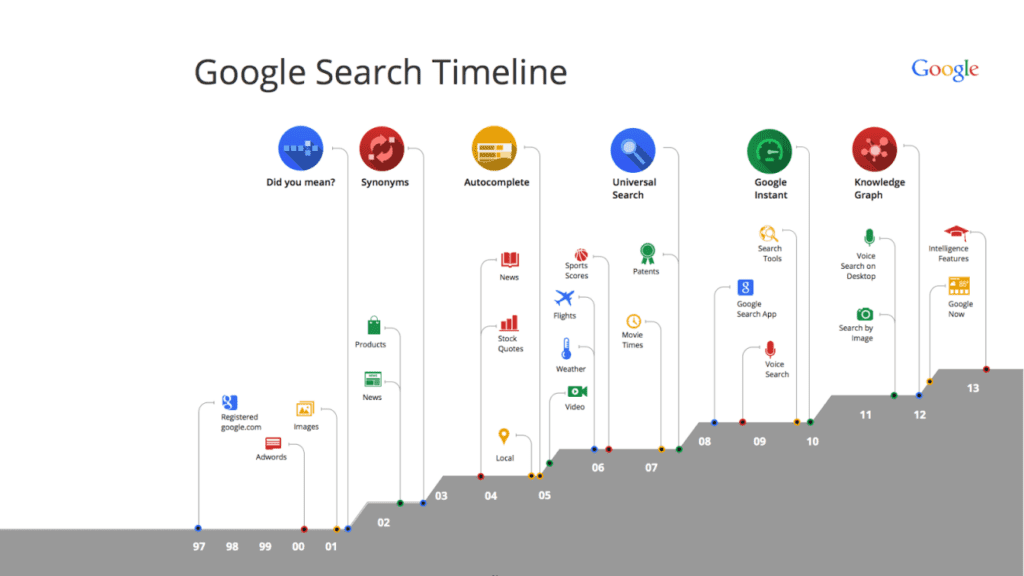Don’t Stress Over First Page Rankings
Click Image to Enlarge
There is a great paradigm shift in the world of the internet––from developers to SEOs and everyone in between.
We used to beat each other over the head with FIRST PAGE RANKINGS! We used to beat you over the head with FIRST PAGE RANKINGS! And you used to beat us over the head with FIRST PAGE RANKINGS!
It is time to leave behind this ranking obsession.
Since its inception in 1998, Google has changed its algorithm and layouts thousands of times.
The explosion of the internet in the late ’90s to the early 2000s created a unique problem for the user: How can I find the website (among all the gazillions of websites) that best suits my needs? Google’s founders created an algorithm to rank websites in the search engine results pages (SERPs) based on relevance to the user’s search query.
Google SERPs have ten organic results. In 1998 all you would see in a SERP was organic results. For a long time, in order to be relevant to a user searching in Google, a company needed to have an organic result on the first page of Google. And for a long time, this was a reasonable expectation.
In 2000 Google introduced AdWords, which still to this day adds an extra two to four results ranked at the top of each page. So now we have 14 total results to sort through (four of which are paid).
Between 2001 and 2007, Google developed what it calls Universal Search. This means SERPs now include News, Products, Maps, Weather, Flights, Sports, Movie times, and so forth. All of this is aimed at providing efficient and effective answers for the user.
Good news for a Google user, bad news for a local business. Now there is even less real estate available to you in a SERP.
From 2008 to 2017 comes the Google search app, voice search, images search, Google Instant, and the Knowledge graphs. We also see directories like Yelp, Angie’s List, Nextdoor, as well as others, getting indexed on the first page. Now from the top of the page to the organic results is at least a full page of scrolling, immediately followed up with up to seven listings of Facebook, Twitter, or directories before getting to real-company organic results.
By 2018, we are seeing sometimes as few as two organic results on the first page being real company websites and as much as half of all website traffic coming to a site via a company’s Google My Business card.
OH NO! So what do I do now?!
Don’t panic!
BxB is here to help!
First and foremost, we need to set aside our previous ideas about having first versus second page results. A second page result does not mean a site is underperforming. We have had an obsession with first page rankings for a long time, and we need to set that aside in favor of a more complex view of Google, search results, and online marketing as a whole.
First page search results are no longer the only indicator of a strong site. Your online presence is multifaceted and based upon many, many things, including name, address, and phone number (NAP) consistency, directory listings, social accounts, website framework, content structure, and more.
Next month we will be talking about Google Reviews, Google My Business, and Mobile-First Indexing. These are big pieces of your complex internet presence, and we are going to look more in depth at them.
CITATIONS:
1. Percentage of all global web pages served to mobile phones from 2009 to 2018
https://www.statista.com/statistics/241462/global-mobile-phone-website-traffic-share/
2. Google search results: the evolution of the SERPs
https://www.1and1.com/digitalguide/online-marketing/search-engine-marketing/the-evolution-of-google-search-results-1998-to/

